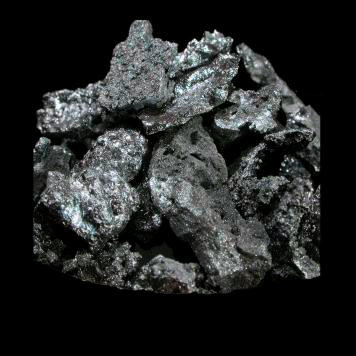◊
◊
◊
◊
Second hardest of the elements



| B | Z = 5 | ◊ ◊ ◊ ◊ ◊ |
Boron | |
| From the Persian "buraq" | ||||
| (AM) Atomic Mass | 10.811 amu | ♦ | +3 | |
| 2550 °C | ♦ | 2300 °C | ||
| 2.35 g/cm3 | ♦ | Tetragonal | ||
| 2 | ♦ | 0.82 Å | ||
| Solid | ♦ | (C) Heat Capacity | 1.026 J/g °C | |
| Electronic-Config | 1s2 2s2 2p1 | ♦ | 800.63 kJ/mol | |
| 480 kJ/mol | ♦ | 50.2 kJ/mol | ||
| 1808 | ♦ | England | ||
| (E°) Standard Potential | B(OH)3 + 3 H+⇔ B + 3 H2O (-0.870 V) | |||
| Stable isotopes | 10B, 11B | |||
| Discovered/Synthesized by | Joseph-Louis Gay-Lussac, Louis-Jaques Thénard, Sir Humphry Davy | |||
| Natural Source | The mineral/ore borax, colemanite, kernite, ulexite | |||
| Common Uses | Soap, fertilizer, fibers, sports equipment, heat-resistant borosilicate glass, semiconductors | |||
| Other Info | Makes glass oven proof Second hardest of the elements |
|||
Previous Element |
 |
Next Element |
||
| Back to Table |
Common Properties |
|||
| Home Page |
Definitions |
|||